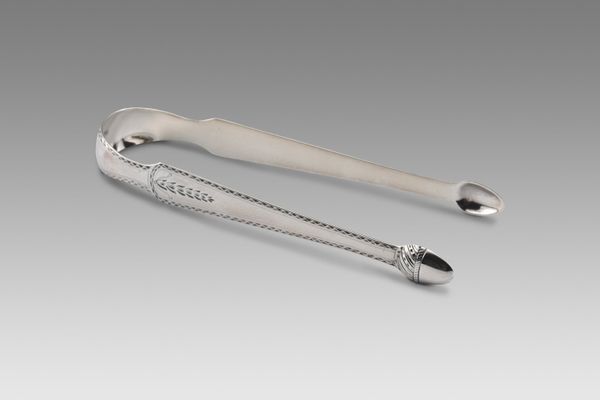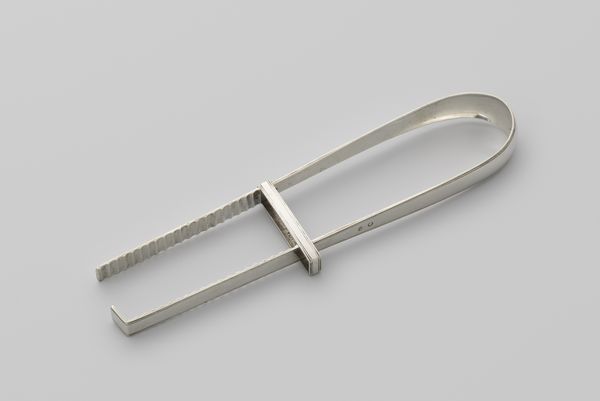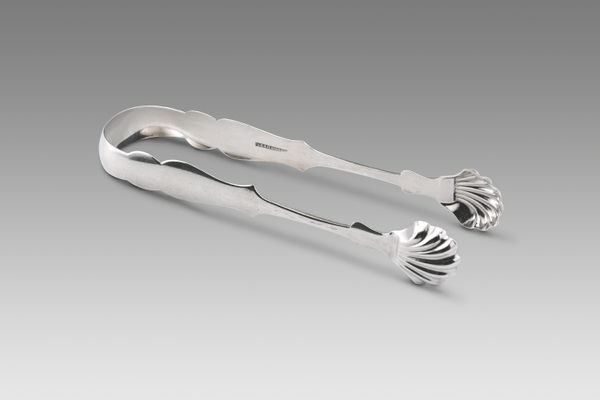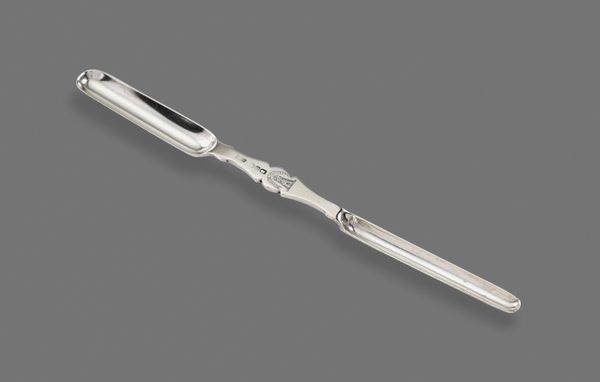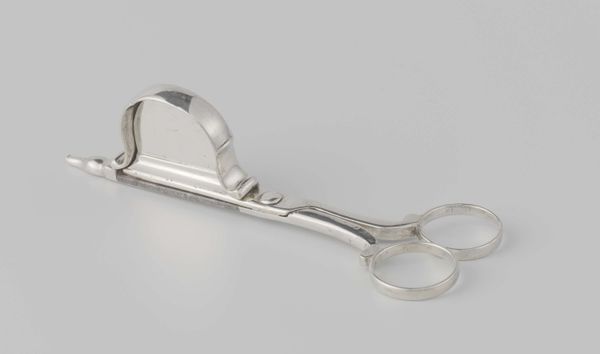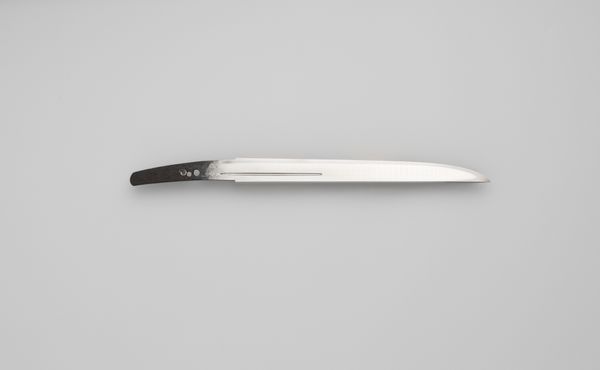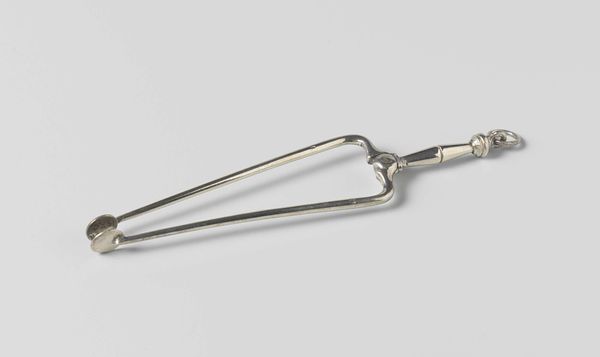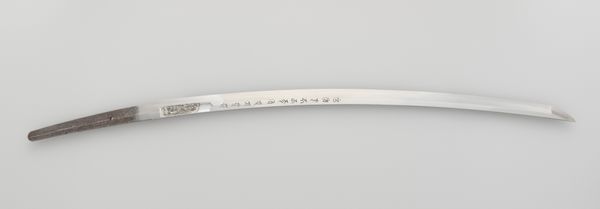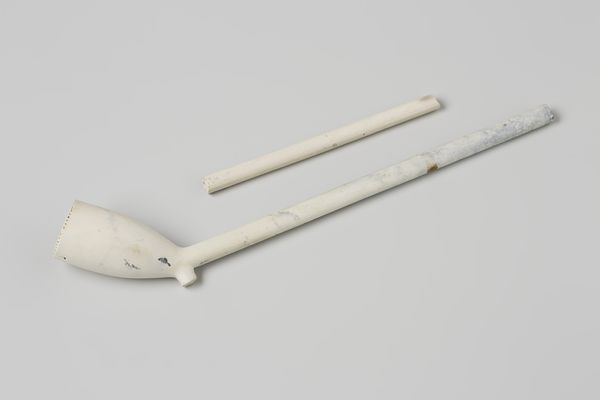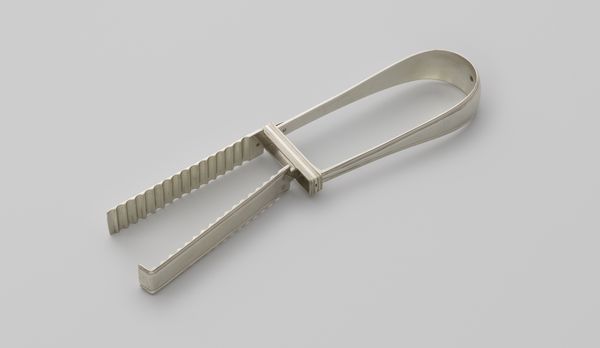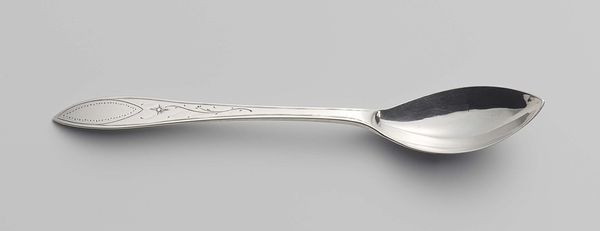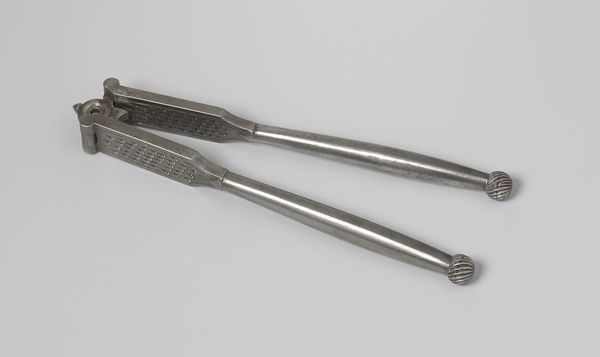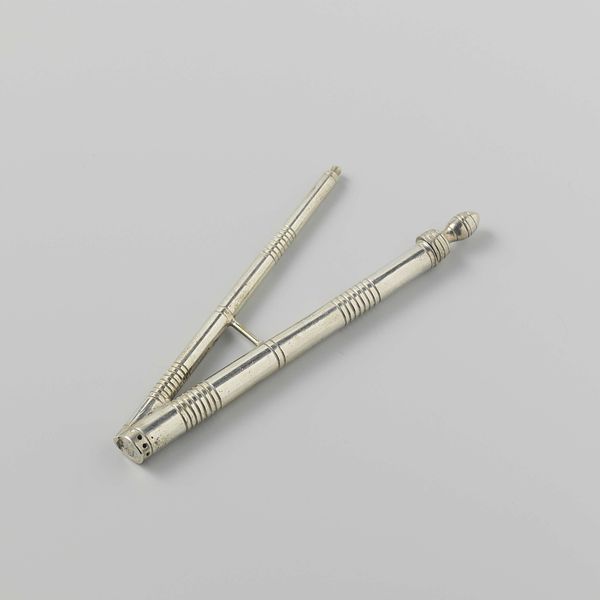
silver, metal
silver
metal
decorative-art
Dimensions: L. 13.3 cm (5 1/4 in.)
Copyright: Public Domain
This elegant fork was crafted in the Netherlands by Johannis Nys in 1722. It is part of a set that includes a knife, both made of silver, and speaks volumes about social status and the rituals of dining in the Dutch Golden Age. In 18th-century Netherlands, owning silverware was a clear indicator of wealth and social standing. Notice the engraved initials ‘VR SE’ along with the date. These marks tell us about the original owner, their identity and family history. Forks were relatively new to the table at this time and their adoption signaled a move towards more refined dining practices among the elite. Silver, as a material, was not merely functional; it reflected the owner's taste, sophistication, and place within a hierarchical society. Understanding this fork involves delving into Dutch trade networks, the silver trade, and the socio-economic structures of the time. Such research helps us interpret the silent language of objects, revealing their embedded social meanings.
Comments
No comments
Be the first to comment and join the conversation on the ultimate creative platform.
